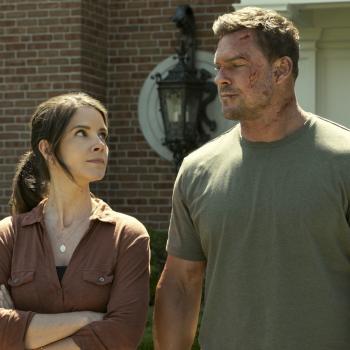Review of The Amazing Spider-Man 2, Directed by Marc Webb
On paper, The Amazing Spider-Man 2 seems like the last film we need right now. The reboot of the Spider-Man franchise two years ago already felt too-soon. Three villains make appearances, including one we’ve already seen interpreted on the big screen. And the world isn’t exactly suffering from a lack of superhero films right now.
Yet in the face of all of that, director Marc Webb brings the beloved webslinger back with surprising purpose. Unlike most sequels, this one actually has a good story to tell about a kid named Peter Parker and his vigilante alter-ego.
A rich and purposeful irony undergirds the plot as Peter uncovers a new layer of his father’s story. He’s no longer just a kid who happened to get bit by a radioactive spider. (MINOR SPOILER) Those spiders were genetically engineered by his father, who used his own DNA so that when things went awry for him, Oscorp could not replicate his work. Suddenly, we find something of a rhyme and reason to Peter becoming Spider-Man in the first place. Because of who his father was, he could very well be the only person capable of acquiring such genetically enhanced powers without facing the same fate as Dr. Connors in the prior film.
With Oscorp employee Max Dillon’s accident in the company’s bioelectric lab turning him into Electro, and with the Green Goblin’s equipment coming from Oscorp’s “Special Projects” division, it becomes increasingly clear that the common denominator of everything evil in the Spider-Man universe is Oscorp tower. Yet Spider-Man, a champion of goodness and justice, also owes his own powers and equipment to the tech superpower. What Peter’s father intended for good – genetically engineering spiders to create a cure for degenerative illnesses – Oscorp intended for evil – weapons development for foreign governments – but for Peter things work out for his good all the same. And now that Peter has been given much in the form of his Spidey powers, much will be required of him.
With the plot centering on the drama of Peter’s relationship with love interest Gwen Stacy (and rightfully so), the film’s only small weakness is that many of the other characters (especially the villains) get a little shortchanged. Max Dillon, for example, only has enough time on screen to be construed via stereotypes – he’s the underappreciated nerd with no friends, a lonely but generally nice guy. Give him near-invincible electrical powers, however, and all it takes is a few unfortunate minutes for him to turn savage on the world.
Conversely, Harry Osborn seems almost too evil from the very beginning. When he discovers in his first scene that he has inherited a mortal illness from his father, his chief goal immediately becomes self-preservation, and he is despicable for it. We have a hard time finding his relationship with Peter meaningful, and as a result, it does not feel as heartbreaking when it shatters.
Meanwhile on the good side, Peter’s Aunt May has a few emotional moments as Peter’s functional mother and moral support, but she gets relegated largely to the background to make room for Gwen.
Much more important than any weakness, though, the story has a moral richness in that it requires Spider-Man to come to grips with the fact that he is not all powerful. He may have remarkable powers, but he still has the same fundamental limitations as the rest of us – namely, time. The film begins with the face of a watch and ends with a clock, symbols that appear throughout the film as motifs for the temporal nature of existence. How do we live life well when it is so fleeting, so prone to disappointment and failure, and so outside of our control? This is the question that Peter – and Spider-Man – must answer.
Love-interest Gwen, as much of a moral authority as anyone in the Spider-Man universe, offers us an inspiring but ultimately futile answer: do good and give hope no matter what happens to you, what better way is there to live?
“I’d like to think Spider-Man gives people hope,” Peter tells Harry in the film, “that everything is going to be ok in the end.”
It’s a fine sentiment for a superhero film, but if it is to have any ultimate value, it must remind us that lowercase saviors like Spider-Man serve as dim pictures pointing to an uppercase Savior – one who came not only to deliver us from the evil around us, but the damning evil within.











